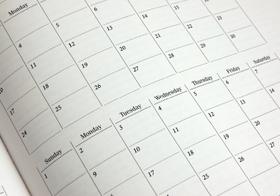If you have not looked for a teaching job in a couple of years or perhaps are just beginning to think about future career moves, then these three job search tips are worth thinking about.
1. Have a Strong Marketability Quotient.
It is a very competitive job market generally. Employers want the best possible candidate for the job. Dozens, sometimes hundreds, of candidates apply for available positions. Private schools are no different. So, how do you stand out from the crowd? By offering 3 or more of the following skills or credentials, you will position yourself for greater success in the private school employment market.
In this video, Don Straits shows you how to think outside the box.
Speak and teach a second language. Teachers who speak French, Spanish, and Mandarin are much in demand in any school. Add a degree and certifications in those subjects to your credentials and you will be a 'hot' property!
Hold specialist certifications. An ESL certificate or a reading specialist certificate will virtually guarantee you employment for life at many schools. An ESL certified teacher is an integral part of the teaching strategy and an important element in a diverse community. A reading specialist can effectively remediate reading and comprehension skills allowing the language arts teachers to focus on coursework.
Be an AP exam reader. A little prestige never hurts. If you are or have been an AP reader in Art History, Chinese Language and Culture, Environmental Science, European History, Government and Politics, Human Geography, Japanese Language and Culture, Music Theory, Spanish Language, Spanish Literature and World History, for example, you will be in demand.
Be willing to relocate. Not always easy to do, but if you can accept an appointment that requires relocation, your marketability will improve significantly.
Offer subjects which are in demand. This will vary from region to region. But it stands to reason that math and physics teachers will probably be in shorter supply compared with physical education teachers. If you can teach to AP level or have IB teaching experience in your subject, that will increase your marketability too.
2. Consider Teaching Overseas
If you are a recent college graduate looking for a job, you probably have thought about teaching from time to time. We need teachers. We need talented teachers. In both public and private sectors. Both at home and abroad.
Abroad? Yes, there are plenty of teaching jobs overseas. Hundreds of private schools in Europe, Asia, Latin America and the Caribbean are always looking for qualified teachers. Many of these are international schools whose students are English speaking. Why is that? Places like Buenos Aires have large ex-pat communities. They usually insist on sending their children to a school with an American or English style curriculum so that their children can fit in more easily back home when they finally return home.
This video takes a look at teaching opportunities in the U.K.
The first thing you have to decide is which country you want to work in. Because you will need a visa to work in a foreign country, you should focus on one country or you will be overwhelmed by red tape and expense. The U.S. Government has thousands of families posted overseas. The Department of State offers a useful list of schools it has vetted. Contact schools on the list to see what vacancies exist. Email makes this part of the job search process easy and fast. Use a specialized employment site such as Teacherhorizons to find available positions at international schools abroad.
Be patient with the process. If there is an opening and you are a good fit, expect to be interviewed by phone. You should also plan to attend any job fairs scheduled in a major city near you.
When you are offered a position and accept it, the visa process gets underway. More paperwork, photos and appointments to get that important document processed. Once you have your visa, the school will send you a plane ticket and instructions as to when and where to report.
3. Match Your Qualifications to the Job
It sounds simple enough, but one of the most important things you must do when looking for a teaching job is to make sure your qualifications match the requirements of the position being offered. If you don't make that crystal clear in your resume and cover letter, you might not even make the first cut when your application is opened and reviewed.
This video offers tips for teaching.
Academic qualifications: Do you have a master's degree? If you do, it should be in mathematics, not classics. But as long as your first degree is in honors mathematics, the master's degree proves that you have done graduate work. Private schools like to see that. Do you have a teacher's certificate from any U.S. state? Not having a teaching certificate probably won't keep you from getting the job, all things being equal, but understand that you will have to get the certificate as soon as possible. The school will most likely make that a condition of hire.
Specific subject teaching experience: Have you taught the subject required at AP level? Most schools want experienced teachers who know how to achieve success in their subject area. The school's reputation will be riding on your success or lack of it. Be able to demonstrate that you have solid achievements in teaching your subject at a high level successfully and effectively.
High school teaching experience: Have you taught in a high school? If you are coming from a college teaching background or from business, you better understand that your students need to be inspired. High school students are not generally as mature as college students. On the other hand private school students go to private school because they want to learn.
Attitude: Are you set in your ways and unwilling to change how you teach your subject? Or do you constantly seek out new ways of doing things? Moving with the times and learning new tricks are characteristics which you must take care to list and point out in your resume. Private schools have integrated technology in the classroom for many years now. It is a prerequisite for most teaching positions.
Passion for your subject: Do you live, breath and constantly think about your subject? Not just in your own intellectual way but in ways which will help young people be inspired and as passionate about your subject as you are? The fact that you can show young people that your subject is fun and exciting needs to be front and center in your resume.
Different learning styles: Children learn in many different ways. Being flexible and patient enough to circle back and help a student who doesn't understand what you are teaching is critical. Schools will ask about that characteristic during your interview. But it will look for evidence of your embracing this important qualification when it reviews your application materials.
Social habits: If you can't wait to leave the classroom and repair to your apartment and your books, you probably won't fit in at a private school. But if you can blend your personal time with time well-spent in the school community coaching a team or supervising an extracurricular activity, you will be looked upon favorably. The person who reads your application will be excited to learn that you are writing a book on lambda calculus at the same time as you are describing how much you love producing Gilbert and Sullivan operettas.
Facility with technology: Are you adept at using a whiteboard and a tablet and all the software which go with those tools? Do you Moodle? Blog? Twitter? If you aren't and don't, you better get with the program fast. That's where teaching is these days. It's virtually electronic. (Pun intended.)
Matching your qualifications to the job being offered is one of the most important parts of finding a new job.
Questions? Contact us on Facebook. @privateschoolreview.






















